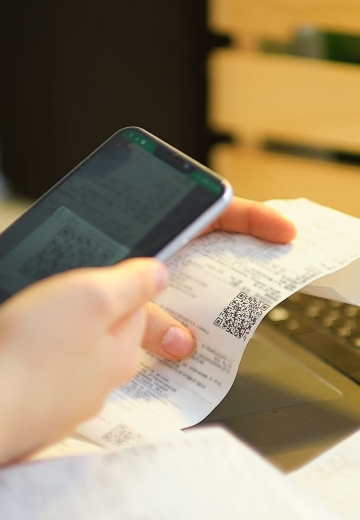This article was originally published in BDO Spotlight - June 2024
Many countries have moved or are moving towards the use of e-invoicing to enhance tax reporting, collection and compliance. In line with the global trend to promoting digitalisation and the adoption of e-invoicing for tax administration, on 15 April 2024, the Inland Revenue Authority of Singapore (IRAS) announced a phased adoption of InvoiceNow for the electronic transmission of invoice data1 to IRAS for the following businesses2:
- From 1 Nov 2025, for newly incorporated companies3 that voluntarily register for GST.
- From 1 Apr 2026, for all new voluntary GST-registrants.
InvoiceNow is a nationwide initiative that facilitates the direct transmission of e-invoices in a structured digital format from one finance system to another between suppliers and buyers, operating on the open standard Peppol network. It was introduced by the Infocomm Media Development Authority (IMDA) in 2019 to allow businesses to send invoices in a structured digital format, reducing the resources required to process and record invoices manually and improving businesses efficiency and accuracy of invoice data.
GST-registered businesses will be required to use InvoiceNow solutions4 to send invoice data5 to IRAS for tax administration. While IRAS is seeking feedback from industry partners before announcing further details for the remaining GST-registered businesses, starting from 1 May 2025, all existing GST-registered businesses can voluntarily transmit invoice data to IRAS via the InvoiceNow network.
Businesses that adopt InvoiceNow will enjoy long-term benefits, such as streamlined processes with the elimination of manual work involved in sending, receipting and recording invoices into systems, thus reducing errors. This will lead to lower rectification costs due to manual processes, lower storage and retrieval costs, and improved cash flow management with quicker invoice processing and payment.
Changes to the existing accounting systems to meet the new requirements will take minimally one year. Businesses should start planning early and consider the following steps to prepare for e-invoicing:
Step 1: Check if the in-house accounting systems are compatible with the requirements of InvoiceNow by performing the following:
- Refer to IMDA’s pre-approved e-invoicing solution providers list;
- Adopt free solutions with basic InvoiceNow capabilities provided by IMDA; or
- Get in touch with an IMDA pre-approved Access Point Provider to help connect the in-house solutions to the InvoiceNow network.
Step 2: Register for InvoiceNow and obtain a Peppol ID from a solution provider and/or Access Point Provider using your Unique Entity Number.
Step 3: Ensure that the in-house accounting system is connected to IRAS’ system.
Step 4: Activate the feature and transmit invoice data to IRAS.
Conclusion
Adoption of InvoiceNow not only aligns with global trends but also promises long-term benefits for businesses, including streamlined processes, reduced errors, lower costs, and improved cash flow management. As the mandatory adoption dates approach, it is crucial for GST-registered businesses to begin preparations early to ensure compatibility of the accounting systems with InvoiceNow and take the necessary steps to integrate and activate this feature. Embracing InvoiceNow will position businesses to operate more efficiently in an increasingly digital landscape.
Article by:
Garrick Wong, Manager, GST
Eu Chin Sien, Executive Director, GST
1A general term used to refer to data in all business documents such as copies of invoices, credit notes and invoice-related data (e.g., aggregated cash sales, aggregated petty cash purchases etc.). Invoice would include tax invoices, simplified invoices and debit notes.
2This excludes overseas entities (including overseas vendors that are registered under the Overseas Vendor Registration regime and section 33(1) agency arrangement) and businesses registered under the Reverse Charge regime.
3These are companies that are incorporated within six months from the time they submit their application for GST registration.
4Finance and accounting software that allow the transmission of invoices between businesses via the InvoiceNow network. They can be purchased off-the-shelf or be customised specifically for businesses in the form of proprietary enterprise resource planning systems. InvoiceNow solutions will be connected to IRAS through Access Points (AP). This connection will enable the transmission of invoice data to IRAS via Application Programming Interface (API) technology.
5Invoice data transmitted on the InvoiceNow network to IRAS include standard-rated supplies (excluding reverse charge supplies), zero-rated supplies and standard-rated purchases (excluding reverse charge purchases) on which input tax claims are made or will be made.

